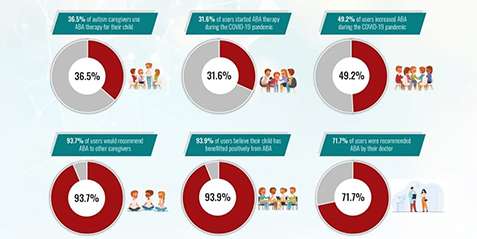Applied Behavior Analysis (ABA) Therapy
Welcome to PsychPlus, where fast, effective, and personalized care comes first.
We know that long waitlists for ABA therapy can be frustrating. Delays in starting treatment can cause developmental gaps to widen, making it harder for your child to reach key milestones. At PsychPlus, we focus on getting you started quickly, ensuring that your child gets the care they need when they need it most.
With a compassionate, multidisciplinary team of mental health providers, we provide personalized ABA therapy designed to foster meaningful progress. Our programs are tailored to each individual’s unique needs and empower families with the knowledge and support to ensure lasting success. At PsychPlus, we offer fast access to care, compassionate experts, and a proven path to progress.
(Coming Soon)


What is ABA Therapy?
Applied Behavior Analysis (ABA) is a proven, compassionate approach that focuses on understanding and promoting positive behavior change. The term “applied” refers to the use of ABA principles to support skill acquisition across a variety of natural environments, such as home, school, and the community. By using evidence-based strategies, ABA helps individuals overcome challenges, develop essential skills, and improve their overall quality of life.
ABA works by fostering the growth of desired behaviors while also reducing behaviors that may interfere with progress or well-being. Whether it’s improving social interactions, learning new skills, or managing daily routines, ABA offers tailored solutions to meet the unique needs of each individual, ensuring that skills are developed and maintained in real-world settings.
Our ABA Programs

Focused ABA Program
Offering Focused ABA programs to target specific skills and behaviors, promoting

Comprehensive ABA Program
Our Comprehensive ABA program supports growth across multiple areas, helping individuals develop broad skills for long-term success and independence.

Parent Education and Consultation
Offering comprehensive in-person and telehealth training, we equip parents and caregivers with practical tools, guidance, and confidence to support meaningful progress at home and beyond.

Functional Behavior Assessment (FBA)
Offering both in-person and telehealth options, we conduct thorough evaluations to understand behaviors, identify underlying causes, and provide actionable insights and strategies to support meaningful progress.
How to Get Started
PsychPlus has you covered
We offer the highest quality of care by partnering with a number of major insurance providers. For other payment options or assistance, please feel free to reach out to us.
Frequently asked questions
Stay Informed

Autism is a developmental disorder that impacts the nervous system and affects the overall cognitive, emotional, social and physical health of the…

In a survey sent out by Autism Parenting Magazine (APM) to more than 160,000 email subscribers, over a third of responders confirmed they are using an…

Social skills refer to a child’s ability to communicate with others in a way that is acceptable and appropriate for social situations. When a child has social skills…

Dr. Stephen Shore once said “If you’ve met one person with autism, you’ve met one person with autism.” As many of you know, the Centre for Disease Control…

Behavior analysis is the scientific study of behavior. It focuses on understanding why people behave the way they do, how behavior can be changed, and how certain…

A behavioral therapy called pivotal response treatment (PRT) boosts the communication skills of autistic children with language delay better than do…
Connect with Us Today!
Ready to embark on a transformative journey? Whether you have questions or are eager to begin, use the form below to connect with us. We’re dedicated to guiding you through every stage of your ABA experience.





